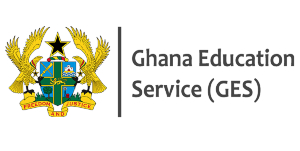(A)Preamble
Education is universally acknowledged as the bedrock of any nation’s development. It equips the youth with the necessary skills and knowledge to drive social and economic progress. In Ghana, the primary and secondary school systems are vital stages of formal education that lay the foundation for higher learning and future career opportunities.
However, over recent years, there has been growing concern about the declining
standards of education at these levels. Despite numerous reforms, interventions, and policies, the quality of education continues to deteriorate. This article explores the reasons behind this decline and proposes actionable solutions to reverse the trend.
(B) Reasons for the deteriorating standard
1. Inadequate funding and resource allocation
One of the fundamental issues affecting Ghana's education system is inadequate
funding. Although the government consistently allocates a portion of the national budget to education, the allocated funds often fall short of what is required to meet the growing demands of the sector. The lack of resources is evident in the poor infrastructure of many primary and secondary schools. Numerous public schools operate with dilapidated buildings, insufficient classroom furniture, and inadequate learning materials. This poor learning environment hampers students' ability to focus and undermines the quality of education they receive.
Additionally, there is often a misallocation of the limited resources available. Instead of prioritizing essential areas such as teacher training, learning materials, and infrastructure development, funds are sometimes diverted to less impactful projects or lost due to corruption and mismanagement. The end result is an education system that struggles to deliver quality learning experiences.
2. Poor teacher quality and inadequate professional development
The quality of education in any school system is directly linked to the quality of its teachers. In Ghana, there is a growing concern about the qualifications and effectiveness of teachers, particularly at the primary and secondary levels. Many teachers lack the necessary training and skills to deliver lessons effectively. While some have not received formal training, others have limited access to ongoing professional development opportunities to update their teaching methods and subject knowledge.
Moreover, the teaching profession in Ghana is often undervalued, leading to a lack of motivation among teachers. Low salaries, delayed promotions, and poor working conditions contribute to low morale. As a result, many capable teachers leave the profession for better-paying jobs in other sectors. Those who remain are often overworked, managing large class sizes that make individualized attention impossible.
Without well-trained, motivated, and adequately supported teachers, the quality of education in Ghana cannot improve.
3. Outdated curriculum and lack of innovation
The curriculum at the primary and secondary school levels in Ghana has become
increasingly outdated. It fails to reflect the changing needs of the modern world, particularly in the areas of technology, critical thinking, and creativity. Instead of fostering problem-solving skills and innovation, the curriculum emphasizes rote memorization and exam-focused learning. This approach limits students’ ability to think independently and apply their knowledge to real-world situations.
Furthermore, the lack of integration of technology into the curriculum is a significant drawback. In a rapidly digitalizing world, the inability to incorporate digital literacy into the classroom puts Ghanaian students at a disadvantage. The gap between what is taught in schools and the skills required in the job market continues to widen, contributing to high youth unemployment and underemployment rates.
4. Insufficient parental and community involvement
Education is not solely the responsibility of the government and teachers; it also requires active participation from parents and the broader community. Unfortunately, in many parts of Ghana, there is limited parental involvement in children’s education.
This lack of engagement is often due to socioeconomic factors, where parents are
preoccupied with making ends meet and have little time or resources to support their children's learning.
Additionally, some parents may not fully understand the value of education, especially in rural areas where economic activities like farming take precedence. When parents and communities do not actively participate in their children’s education, it creates a gap that affects students' motivation and performance.
5. Inefficient education policies and political interference
Ghana’s education sector has seen numerous policy changes over the years, but many have not yielded the desired outcomes. The constant shifts in educational policies, often driven by political motives rather than evidence-based research, create inconsistencies and confusion within the system. Politicians frequently implement new policies without thoroughly assessing their potential impact or the capacity of schools to adapt to these changes.
Moreover, the lack of a coherent long-term strategy for educational development means that reforms are often short-lived, replaced by new initiatives with each change of government. This instability hinders the implementation of sustainable solutions and leaves schools struggling to adjust to new directives.
6. Examination-Oriented System
Ghana's education system is heavily examination-oriented, with a strong focus on standardized tests such as the Basic Education Certificate Examination (BECE) and the West African Senior School Certificate Examination (WASSCE). While examinations area necessary tool for assessment, the overemphasis on test results has significant drawbacks. Teachers often “teach to the test,” neglecting holistic education that includes practical skills, critical thinking, and creativity.
This examination-driven approach encourages rote learning, where students memorize information solely to pass exams, rather than to understand and apply knowledge. It also places immense pressure on students, leading to stress and, in some cases, academic dishonesty. The current system does not adequately assess a student's overall capabilities, creativity, or potential, which undermines the purpose of education.
7. Urban-rural disparities
The disparity between urban and rural schools is another significant factor contributing to the decline in educational standards. While urban schools tend to have better infrastructure, qualified teachers, and access to educational resources, rural schools often lack basic amenities such as electricity, textbooks, and qualified staff. This inequality exacerbates the educational divide and limits opportunities for students in rural areas to achieve their full potential.
(C) Recommendations for improvement
To address the challenges plaguing the primary and secondary school systems in
Ghana, the following recommendations are proposed:
1. Increase investment in education
The government should prioritize education in its budget allocation, focusing on
building infrastructure, providing learning materials, and supporting teacher training programs. It is essential to ensure that funds are used efficiently and reach the intended beneficiaries.
2. Enhance teacher training and motivation
To provide teachers the tools they need to teach in the current day, comprehensive teacher training programs ought to be put in place. Additionally, raising teacher pay and working conditions can encourage positive attitudes and draw in qualified professionals.
3. Revise the curriculum
To reflect contemporary demands and developments, the curriculum should be
examined and revised on a regular basis. Critical thinking, problem-solving,
technological integration, and life skills should all be prioritized.
4. Encourage parental and community involvement
Schools should use programs and awareness campaigns that emphasize the value of
education to involve parents and community people. Participation from the community may boost school support and raise student achievement.
5. Implement consistent and evidence-based policies
Education policy should be founded on rigorous study and data, with an emphasis on long-term outcomes rather than short-term political advantages. Achieving long-lasting gains requires consistent policy implementation.
6. Reduce the Focus on Examinations
In order to promote deeper learning, the educational system should shift to a more holistic evaluation strategy that emphasizes creativity, practical skills, and knowledge application.
(D) Conclusion
Ghana's basic and secondary education quality reduction is a serious problem that needs immediate response. It is a complex issue with roots in outmoded curricula, ineffective policies, low teacher quality, and insufficient financing. It will need cooperation from the community, parents, teachers, and the government to address these issues. Ghana can revive its educational system and provide its young people the skills they need to thrive in a world that is becoming more complicated by putting comprehensive changes into place and concentrating on long-term plans.
Education is the key to national development, and the time to act is now
Opinions of Wednesday, 13 November 2024
Columnist: Duodu Bimpong



















